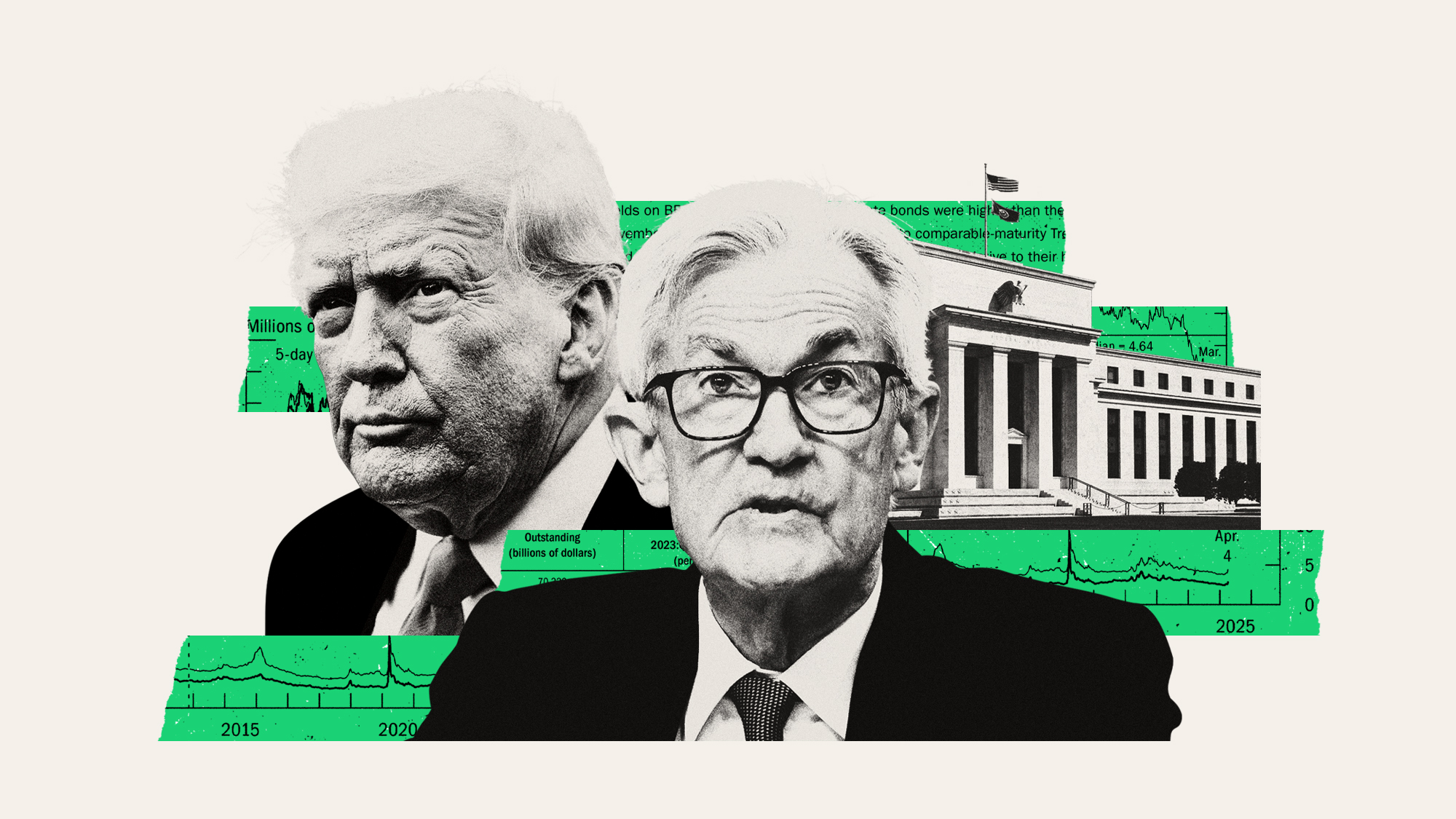Who's disinforming whom? Why the DHS board failed


A free daily email with the biggest news stories of the day – and the best features from TheWeek.com
You are now subscribed
Your newsletter sign-up was successful
The Department of Homeland Security's ill-fated disinformation board met its predictable, if temporary, end this week. The people involved in the Biden administration's efforts naturally lamented it as a victim of the very forces it was conceived to combat.
This framing illustrates precisely the problem, of course: viewing disinformation, at least the bad kind, as a more or less conservative phenomenon while ignoring dubious views common on the left. This was personified by Nina Jankowicz, the defenestrated face of the now-paused board, who believed all the conventional things about Trump-Russia collusion, Hunter Biden's laptop, and COVID-19's origins that turned out to be wrong or at least not as cut and dry as the received wisdom would have it.
Disinformation has a specific definition involving the deliberate spread of propagandistic and false claims, often by hostile foreign powers. It was this phenomenon that the Biden administration insisted their board was intended to combat, not bad tweets. But the inclination of Jankowicz and her circle to speak publicly as if the problem was anything that undercut liberal narratives or amplified conservative ones, no matter how debatable, made it impossible for many ordinary citizens to take this seriously.
The Week
Escape your echo chamber. Get the facts behind the news, plus analysis from multiple perspectives.

Sign up for The Week's Free Newsletters
From our morning news briefing to a weekly Good News Newsletter, get the best of The Week delivered directly to your inbox.
From our morning news briefing to a weekly Good News Newsletter, get the best of The Week delivered directly to your inbox.
All this was made inevitable by sloppy disinformation talk that long predated the Biden White House, including an imprecise definition of what constituted Russian election interference in 2016. Those efforts ranged from crude propaganda to stealing emails in an attempt to swing American public opinion, as opposed to altering vote totals (as many partisan Democrats believe without evidence). And it included some information that, however illegally or unethically obtained, that was both accurate and a legitimate object of public concern. Among the revelations were some of Hillary Clinton's opinions and the Democratic National Committee's less than neutral stance toward Bernie Sanders.
The propriety of all this and what to do about it can be debated. We don't want Russia, or other foreign governments (much less illiberal ones) influencing our elections. But a lot of good journalism is based on leaked information, and the whole affair was swept up under the rubric of the Kremlin "hacking the election."
It was into that climate, plus the argument over Big Tech censorship and gatekeeping, that Jankowicz and her merry board stepped. No surprise that it failed.
A free daily email with the biggest news stories of the day – and the best features from TheWeek.com
W. James Antle III is the politics editor of the Washington Examiner, the former editor of The American Conservative, and author of Devouring Freedom: Can Big Government Ever Be Stopped?.
-
 The Week Unwrapped: Do the Freemasons have too much sway in the police force?
The Week Unwrapped: Do the Freemasons have too much sway in the police force?Podcast Plus, what does the growing popularity of prediction markets mean for the future? And why are UK film and TV workers struggling?
-
 Properties of the week: pretty thatched cottages
Properties of the week: pretty thatched cottagesThe Week Recommends Featuring homes in West Sussex, Dorset and Suffolk
-
 The week’s best photos
The week’s best photosIn Pictures An explosive meal, a carnival of joy, and more
-
 Trump wants a weaker dollar, but economists aren’t so sure
Trump wants a weaker dollar, but economists aren’t so sureTalking Points A weaker dollar can make imports more expensive but also boost gold
-
 Can Trump make single-family homes affordable by banning big investors?
Can Trump make single-family homes affordable by banning big investors?Talking Points Wall Street takes the blame
-
 Is a financial market crash around the corner?
Is a financial market crash around the corner?Talking Points Observers see echoes of 1929
-
 Trump wants to revive coal. Will it work?
Trump wants to revive coal. Will it work?Talking Points Wind, solar and natural gas are ascendant
-
 Is Trump America's CEO?
Is Trump America's CEO?Talking Points The party of free enterprise turns to 'cronyism'
-
 Trump's threats to fire Jerome Powell are unsettling the markets
Trump's threats to fire Jerome Powell are unsettling the marketsTalking Points Expect a 'period of volatility' if he follows through
-
 Rich people are 'powering' America's economy
Rich people are 'powering' America's economyTalking Points The income gap sets a new record
-
 Why is the threat of stagflation rising?
Why is the threat of stagflation rising?Talking Points Inflation is sticky. Trump's tariffs won't help.
